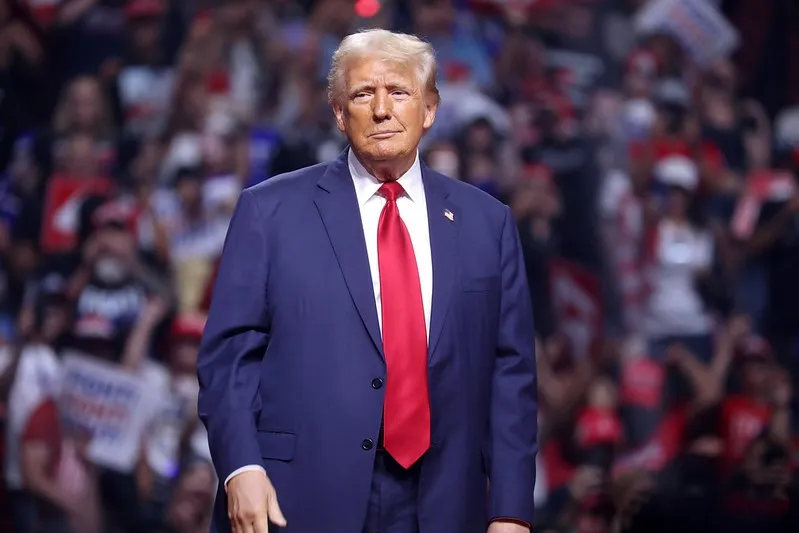
A US trade court has ruled that President Donald Trump’s tariffs are illegal, but Goldman Sachs says this “setback” may do little to alter the ultimate course of America’s trade policy.
A three-judge panel at the New York-based court of international trade said last night that the move “exceeded any authority granted to the President”.
It added: “The court does not pass upon the wisdom or likely effectiveness of the president’s use of tariffs as leverage. That use is impermissible not because it is unwise or ineffective, but because [federal law] does not allow it.”
The court has given the Trump administration 10 days to reverse the policy, but the US government appealed within minutes of the ruling.
Stock markets rose in Asia and London in reaction to the court decision, but they did not see-saw as they have done in the weeks since the US introduced its tariff plan on ‘Liberation Day’ on 2 April.
AJ Bell investment director Russ Mould says: “That the gains were measured rather than blockbuster reflects a healthy level of scepticism over whether this can truly rein in the Trump administration, which has already launched an appeal against the judgement.
Mould adds: “In London, stocks and investment trusts with exposure to the US moved higher.
“The bond market though continues to flash a warning signal with yields on sovereign debt moving higher amid a weak auction for 40-year Japanese government debt at the start of this week.”
The US has set new tariffs for countries, sectors and companies around the world amounting to over 145% for some nations, such as China, but has paused much of this at a baseline of 10% while it conducts trade negotiations.
The UK struck a trade deal with the US earlier this month, which agreed to reduce import taxes on a set number of British cars and allow some steel and aluminium into the country tariff-free.
However, a 10% duty on most goods from the UK remains in place.
Bank of England governor Andrew Bailey said in April that tariffs were a serious “risk to growth” in the UK.
Goldman Sachs analyst Alec Phillips says: “As the administration can impose an across-the-board tariff and country-specific tariffs under other legal authorities this ruling represents a setback for the administration’s tariff plans and increases uncertainty but might not change the final outcome for most major US trading partners.”
This leaves the Bank of England’s Monetary Policy Committee to consider how it will react to the court ruling at its next 19 June meeting.
The committee faces a balancing act. On the one hand, its core remit is to keep the inflation rate at 2%, though the last reading jumped to 3.5% in the 12 months to April from 2.6%.
But if Trump’s tariffs push up prices and fuel inflation, interest rates, currently at 4.25%, could stay higher for longer.
Money markets had expected between two and three further cuts this year to boost a subdued economy that faces tariff uncertainties.
But after the inflation hike earlier this month, many economists predict that the Monetary Policy Committee may pause rate reductions in June to gauge how hot prices are running across the economy.
But rate-setters’ deliberations will be further complicated by this latest twist in global trade policy.



